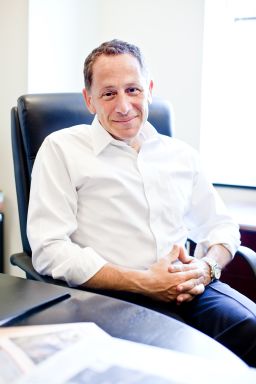Editor’s Note: David Rothkopf is a visiting scholar at the Carnegie Endowment for International Peace. He is the author of “Running the World: The Inside Story of the National Security Council and the Architects of American Power” and “The Great Questions of Tomorrow.” Follow him on Twitter: @djrothkopf. The opinions expressed in this commentary are solely those of the writer.
This week, North Korea’s Kim regime is fanning the flames of tension, and not along the DMZ that separates the nation from its neighbors to the south.

Rather, the dividing line Kim is focused on is one he hopes to draw through a single building on the opposite side of the world, one that also happens to be located, like the border between the Koreas, on the 38th parallel: the White House. It would run, they hope, between President Donald Trump and his national security adviser, John Bolton.
Pyongyang’s Tuesday announcement that it would not participate in a summit with the US President if the objective is to force North Korea to unilaterally give up nuclear weapons came as a shock to the Trump administration. It was also no doubt a blow to President Donald Trump, who has already been crowing in public about his eligibility for the Nobel Peace Prize should he achieve a breakthrough during the summit, which is scheduled for June 12 in Singapore.
But Trump was just one of the targets of the message. The choicest words in the North Korean statement were directed at the ultra-hawkish Bolton. “We do not hide our feeling of repugnance toward him,” said senior North Korean diplomat Kim Kye Gwan in the official statement.
Bolton, who is known to be extremely skeptical of North Korea’s recent willingness to negotiate, has in the past argued for pre-emptive military strikes to stop the North’s nuclear program. He has also argued for similar strikes in the case of Iran.
In fact, given his historical stance and taste for saber-rattling bluster, it would not be that shocking to me were he to consider such strikes against Canada if NAFTA talks went off the rails. (Ok, here I have to join in with the North Koreans. I can’t hide my feeling of repugnance toward him either.)
In fact, whoever left him off the invitation list to the royal wedding probably should not sleep so soundly, either.
The North Koreans, not known for their sense of humor, did assert that it would be a “ridiculous comedy” if Trump were to pay too much attention to Bolton’s positions. They are particularly unhappy with his use of Libya as a model for the denuclearization talks because they realize those did not turn out too well for Moammar Gadhafi, who ended up being beaten and stabbed to death by a mob in the street not too long after he gave up his nukes.
In its statement, the Kim regime also rejected out of hand the idea that it would have to give up all its nuclear weapons before receiving any compensation from the United States.
The North Korean statement, while shocking to the White House, came as no surprise to veteran Korea watchers who knew the path to a deal would have many twists, and who, almost universally, are deeply skeptical that the leadership in Pyongyang has any intention of giving up its nuclear capability voluntarily. Seasoned observers know also that the North’s negotiators are tough, canny and famously unreliable.
The verbal pre-emptive strike fired yesterday that targeted Bolton and any other US hard-liners carried the implicit message to President Trump that he had better make the twisting bit of West Wing corridor separating his office from Bolton’s a new stretch of no-man’s land if he wants the acclaim, and distraction from his legal problems, that might come with a deal.
If Trump signals more flexibility, then the summit he craves may still happen. (And indeed, within hours, Sarah Sanders denied that Libya was ever considered a model for the US approach to North Korea.)
At the same time, if Trump shows (yet again) he wants a deal that badly, the North Koreans will then seek to push even harder for more compromises. In fact, that was almost certainly their plan all along – to see what they could get for relatively modest, gradual concessions, and without having to give up their nuclear crown jewels.
This might make Bolton even more apoplectic than he usually appears to be, but the problem for Trump & Co. is they have no good plan B.
For all the talk of “fire and fury,” it is more likely that it is not Trump’s toughness that has brought Kim to the negotiating table, but rather his perceived weakness, his need for a deal – as well as the enhanced confidence the North Koreans have thanks to their development of a nuclear arsenal that’s not likely to be dismantled anytime soon.
Throw in to this mix Trump’s known willingness to ignore his advisers, and Tuesday’s gambit from Kim makes perfect sense – and should be seen as the real start of the North Korea nuclear talks.


